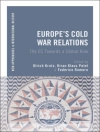The first comprehensive and authoritative history of work and labour in Africa; a key text for all working on African Studies and Labour History worldwide.
Co-published with the International Labour Organization on the centenary of its founding in 1919, the General Labour History of Africa is a landmark in the study of labour history. It brings, for the first time, an African perspective within a global context to the study of labour and labour relations. The volume analyses key developments in the 20th century, such as the emergence of free wage labour; the transformation in labour relations; the role of capital and employers; labour agency and movements; the growing diversity of formal and informal or precarious labour; the meaning of work; and the impact of gender and age on the workplace.
The contributors – eminent historians, anthropologists and social scientists from Africa, Europe and the United States – examine African labour in the context of labour and social issues worldwide: mobility and colonial and postcolonial migration, forced labour, security, the growth of entrepreneurial labour, the informal sector and self-employment, and the impact of trade unionism, welfare and state relations. The book discusses key sectors such as mining, agriculture, industry, transport, domestic work, and sport, tourism and entertainment, as well as the international dimension and the history and impact of the International Labour Organization itself. This authoritative and comprehensive work will be an invaluableresource for historians of labour, social relations and African history.
In association with the ILO Regional Office for Africa
Stefano Bellucci is senior researcher at the International Institute of Social History, Amsterdam, and lecturer in African History and Economy at Leiden University, the Netherlands; Andreas Eckert is Director of the International Research Centre for Work and the Human Life Cycle in Global History and professor of African history at Humboldt University, Berlin, Germany.
Cuprins
Foreword by Cynthia Samuel-Olonjuwon, ILO Assistant Director General and Regional Director for Africa
Introduction: The ‘Labour Question’ in Africanist Historiography – Stefano Bellucci and Andreas Eckert
Part I: Free and Unfree Labour
Wage labour – Andreas Eckert
Precarious and Informal Labour – Franco Barchiesi
Forced Labour – Babacar Fall and Richard L. Roberts
Part II: Key Sectors
Agriculture – Julia Tischler
Mining – Carolyn A. Brown
Industry and Manufacturing – Patrick Neveling
Transport – Stefano Bellucci
Part III: International Dimensions and Mobility
The International Labour Organization – Luca Puddu and Daniel Roger Maul and Hakeem Ibikunle Tijani
Labour Migration – Helena Pérez-Niño
Part IV Varieties of Work
Domestic Work – Deborah Fahy Bryceson
Military and Pollice – Michelle R. Moyd and Joël Glasman
Crime and Illegal Work – Laurent Fourchard
White-Collar Workers – Dmitri van den Bersselaar
Entertainment, Sport and Tourism – Andreas Admasie
Part V: Entrepreneurs and Self-Employment
Capitalists and Labour in Africa – Gareth Austin
Entrepreneurial Labour – Sara S. Berry
Professionals and Executives – Rory Pilossof
Part VI: The State, Unions and Welfare
Labour and the State – Akua O. Britwum and Leyla Dakhli
Trade Unions – Bill Freund
Social Welfare – Ben Scully and Rana Jawad
Mutualism and Cooperative Work – Samuel A. Nyanchoga
Part VII: Conclusions
The Labour Question in Africa and the World – Frederick Cooper












